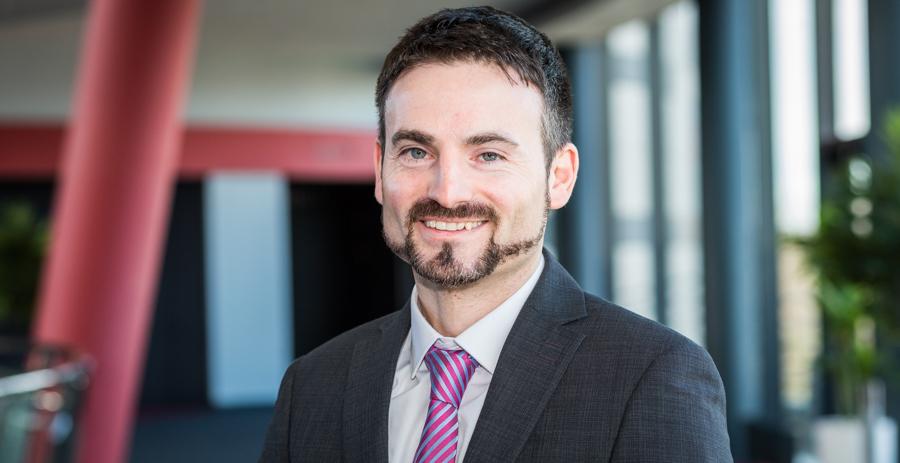

Spotlight on Research: Moving forward with Hydrogen Fuel Cell Technology
This week’s Spotlight on Research is with Dr James Carton, Assistant Professor, DCU School of Mechanical & Manufacturing Engineering.
You work on sustainable transport – what does sustainability mean to you?
“Sustainability is a word that is knocked around a lot. When I talk about sustainability to students, we think about future generations having the same opportunities that we have had – education, access to energy and transport. We want people and societies in 5 years and 50 years having the capability to exist and co-habit with nature.”
What’s your research about?
“I’m interested in renewable energy technologies and transport. As an engineer, I focus on materials for fuel cell devices, but I also take the broader picture, looking at how we can implement new processes in a sustainable way where technologies will benefit our economy.
My particular focus is on hydrogen and how we can use it to store and use energy for transport. So, in the case of renewable wind energy, it would mean that excess energy generated by wind turbines could be put towards clean transport through hydrogen.”
How did you become interested in this area?
“I started working on this in school, I took apart a lawnmower at home and I built a system where I could power it with hydrogen. That led to a project in the BT Young Scientist & Technology Exhibition. I then studied mechanical engineering and went on to work in industry, including with NASA, where I worked on an experiment that was sent up to the International Space Station. I went on to complete my PhD in DCU and my interest in energy and technology has continued to grow from there.”
What kinds of applications are you looking at?
“Hydrogen as a fuel suits many modes of transport, such as buses or lorries, where you have heavy loads and long journeys. At the moment, we are working on a cross-border project in Ireland to use excess electricity from wind farms, storing the energy as hydrogen and delivering the hydrogen to power buses.”
How do you ensure that the hydrogen is stable?
“In the lab we store hydrogen chemically bonded to a material that stores it safely. You could throw it onto fire and it doesn’t burn. Then we add another chemical to seep the hydrogen off. In transport applications it is stored in a tank, which is made out of the same material as bullet proof vests, so it is safe!”
How are you encouraging wider awareness of hydrogen-based technologies?
“I have industry coming to me to ask for advice, and I write several reports and present my work to the wider community. I also teach engineering students in DCU, bringing in devices, showing them different types of technologies. Just last week I was at Olin College of Engineering in Boston, at the Summer Institute for designing student-centred learning experiences. I got lots of new ideas and techniques to teach and engage our engineering students.”
How do you take a break from it all?
“You do need your headspace! I enjoy running, forest walks and mountain hiking. We live in a world with nature, not us and then nature, so I like to make sure I spend time outdoors.”
